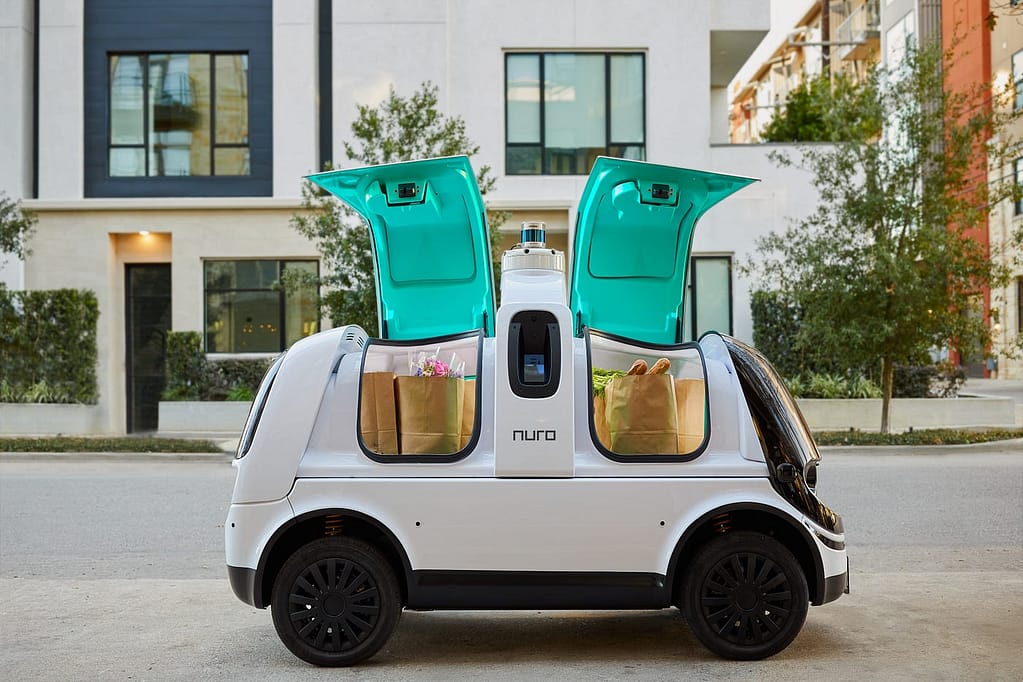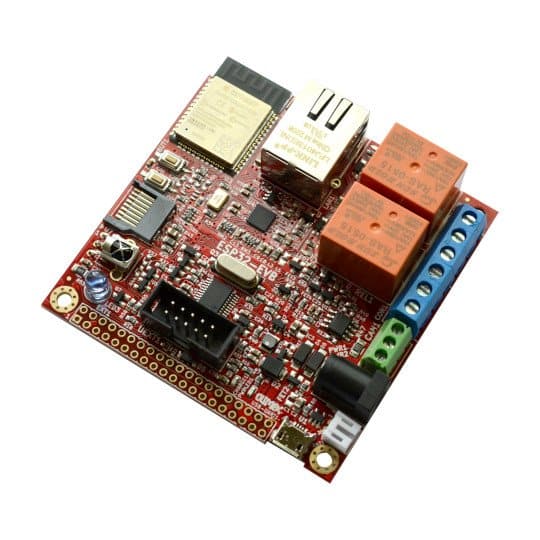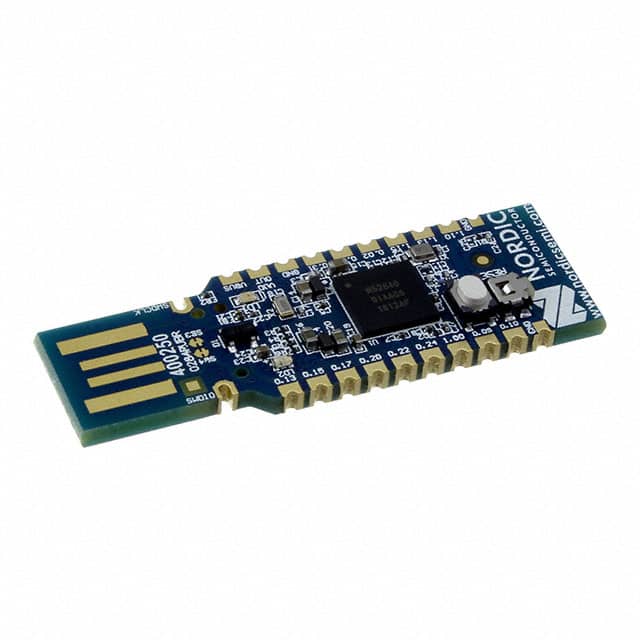
Spend a day in the right neighborhood in Houston and you might notice something different, an electric vehicle, about the size of a golf cart, gliding quietly down the street. There’s no driver, no one inside, and it’s not there to pick up passengers. Instead, it’s making deliveries. That’s the Nuro R2, a compact, autonomous vehicle designed entirely around the idea of getting goods to your doorstep without a person at the wheel.
Unlike most autonomous vehicles, the R2 isn’t a modified version of an existing car. It was designed from the ground up for a single purpose: to move things, not people. That means no front seats, no steering controls, no windows. What it does have are two temperature-controlled compartments that open when a customer enters a secure code. Inside, you might find a few bags of groceries, a takeout order, or prescription medications, delivered without human interaction.
It’s fully electric, quiet, and built to top out at 25 miles per hour. The R2 is narrow and compact, taking up less road space than a standard car, which makes it ideal for suburban neighborhoods. Weighing in at around 2,500 pounds and capable of carrying up to 419 pounds of cargo, it fits into a unique niche, larger and more capable than a sidewalk robot, but far smaller and more efficient than a traditional delivery van. Thanks to its advanced sensors and compact size, it’s able to safely navigate residential streets with lower speed limits and fewer unpredictable variables.
A major milestone came in 2020 when the U.S. Department of Transportation granted Nuro a federal safety exemption. That decision allowed the R2 to bypass traditional vehicle requirements like mirrors and windshields, components built for human drivers that simply aren’t needed here. Instead, it relies on a mix of cameras and custom sensors that provide a constant 360-degree view of its surroundings. The vehicle itself is manufactured by Roush in Michigan, with an automotive-grade body designed to withstand daily use in a variety of weather conditions.
When Nuro launched the R2 in Houston, it partnered with big names like Kroger, Domino’s, and CVS. The rollout started with Prius vehicles equipped with safety drivers to map the neighborhoods and test delivery routes. Once everything was validated, the fully autonomous R2s took over. Feedback has been encouraging so far. A Domino’s manager involved in the pilot commented, “This program will allow us to better understand how customers respond to the deliveries, how they interact with the robot and how it affects store operations.” In a separate community initiative, R2 was used to deliver groceries to residents with disabilities, earning praise from local leaders for expanding access and promoting independence.
From a business standpoint, the economics are starting to speak for themselves. While Nuro hasn’t disclosed the exact cost of each unit, some analysts estimate that delivery operating costs with R2 could drop below 50 cents per trip, significantly less than the $5 to $7 range typically associated with human-driven deliveries. In earlier pilot programs, customers were charged as little as $5.95 per delivery. According to ARK Invest, autonomous systems like these could bring that number down to around 40 cents. For high-volume delivery operations, those savings add up fast, making ROI possible in just a few months.
That said, the R2 isn’t the only player in town. Competitors like Amazon’s Scout, Starship Technologies, and Refraction AI are exploring similar ground. Scout and Starship stick to sidewalks, focusing on short distances and campus routes. Refraction’s REV-1 takes to bike lanes. While critics point out that Nuro’s road-based model may face slower rollouts due to regulatory hurdles, supporters argue that the R2’s larger cargo space, rugged build, and full autonomy make it a more scalable option for suburban delivery.
If your business relies on getting products to customers quickly and efficiently, Nuro’s R2 shows that robot delivery is no longer a concept, it’s happening now, in real neighborhoods, with real customers. And as labor costs rise and urban delivery gets tougher, the numbers make even more sense.
At Mendy’s Robotics and AI, we work with businesses ready to take that next step. Whether you’re piloting autonomous delivery for the first time or building out a dedicated fleet, we can help assess route potential, calculate ROI, and design solutions that align with your delivery goals.
Let’s build the future of delivery, starting with the streets your customers already know and trust.
References




